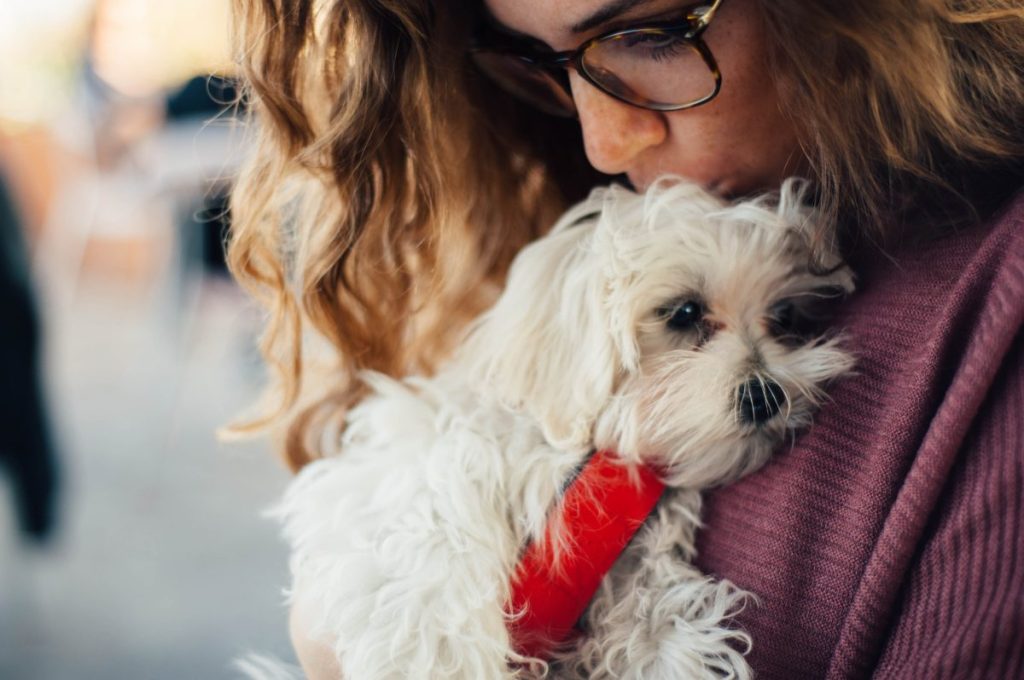Dog owners know all too well the vastly different personality traits their furry companions can exhibit. Just like humans, some canines enjoy a good measure of independence, while others — known as “Velcro dogs” — simply cannot bear the thought of being left alone. These breeds, much like the famous fastening material “Velcro,” love to stick close to their human counterparts.
Whether they are following you around the house, lying at your feet while you work, or cuddling next to you on the couch, these pooches need near-constant human contact. In this piece, we’ll discuss the characteristics that define a Velcro dog and explore some of the most well-known affectionate and clingy dog breeds.
What are velcro dogs

Velcro dogs refer to certain dog breeds who tend to form a very close bond with their humans and seek their constant attention and companionship. This term originated from the distinctive behavior these pups demonstrate of sticking to their owners like “Velcro.”
While most canines are loyal and love spending time with their humans, Velcro dogs take this to a whole new level. They always want to be close to their owners and can suffer from anxiety if left alone for extended periods. They will follow you around, wanting to be a part of everything you do. With their highly social nature, they make lovable family pets. However, this can also result in emotional and behavioral challenges if not properly addressed. It’s essential to understand that the behavior of Velcro dogs, while endearing, is a trait that may require some dedicated management.
Top velcro dog breeds

Having understood what a Velcro dog is, we can now get acquainted with some breeds who typically match the description.
Yorkshire Terrier

Small yet fierce, the Yorkshire Terrier embodies the classic definition of a Velcro dog breed. Whether they’re tagging along on a drive or lounging in your lap during a Netflix marathon, Yorkies find satisfaction in simply being near their favorite humans.
Since they are Terriers, they have a spicier temperament compared to most other clingy pups. To effectively handle this distinct personality, an experienced owner needs to employ strict yet gentle training. This ensures that they don’t become overly difficult to handle.
Chihuahua
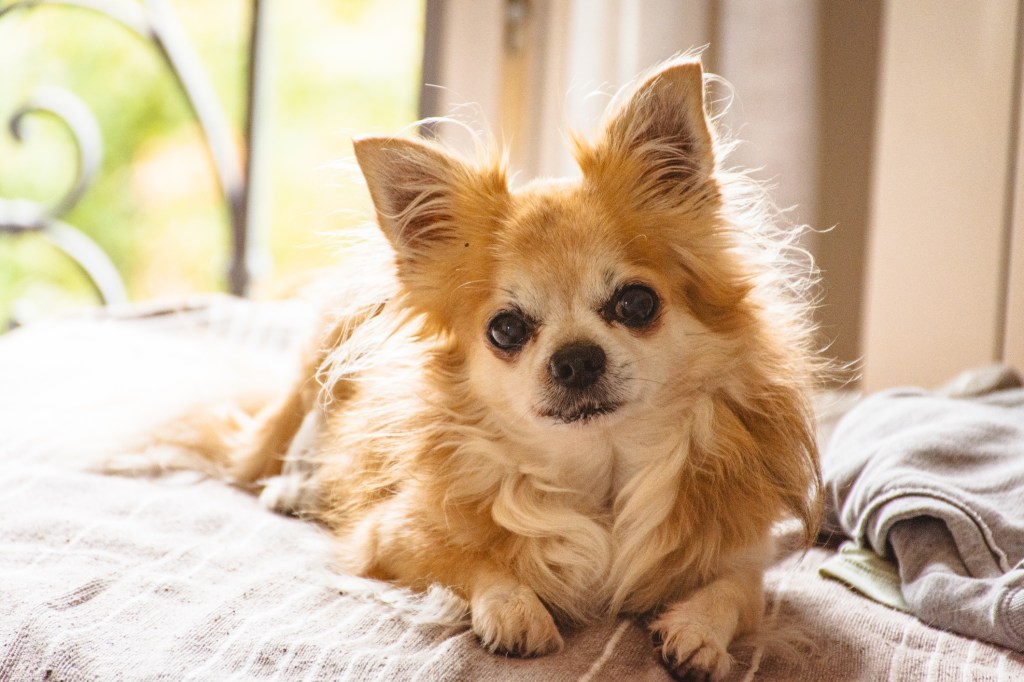
The smallest dog in the world would gladly be carried in a bag if it allows them to accompany you anywhere. Thankfully, their petite size makes this possible. Although not all Chihuahuas require constant companionship, many of them do. They are bold and assertive dogs with a clear understanding of their needs and more often than not, their desire is to be by your side!
Vizsla
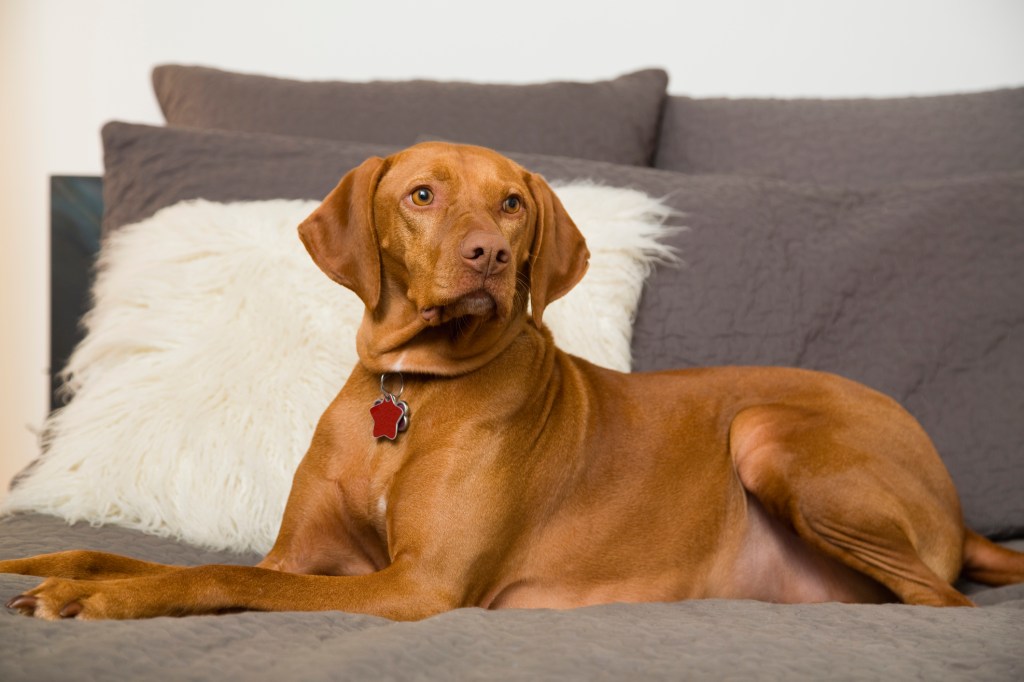
The Vizsla — a Hungarian breed — has a bit of a hunting instinct. Thanks to their agility and muscular physique, these dogs perform remarkably well in sports. Vizslas are filled with energy and require regular mental and physical stimulation.
Ideally, Vizslas are suited for families or owners leading highly active lives, ensuring they are kept entertained and cared for as much as possible. They long for inclusion in all family activities.
Labrador Retriever
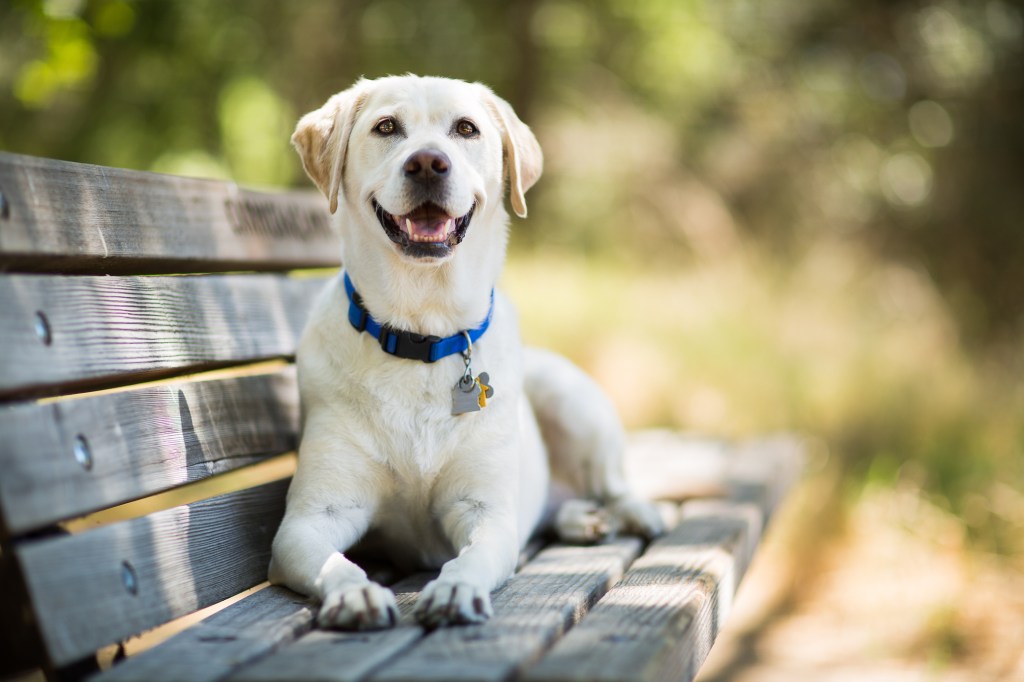
Labrador Retrievers are known to be one of the most clingy dog breeds. This lovable creature prefers being with their human family and can become unhappy if neglected for extended periods. Labs carve staying close to their owners, and it’s not uncommon for them — despite their large size — to try and snuggle onto your lap.
Although Labrador Retrievers make great pets for first-time dog owners, they may not be suitable for everyone. Be prepared for lots of shedding, some drooling, and the need to provide them with ample physical and mental stimulation. Labs are also notorious for overeating. Hence, treat moderation is necessary to prevent them from becoming overweight.
Golden Retriever

The Golden Retriever — much like the Labrador — is a sporty and loyal dog breed. These canines are great in the company of children and are generally friendly with everyone. However, they are at their happiest when with their family. Don’t be surprised if you often find them closely following you around the house.
While the long, luxurious fur of the Golden Retriever gives them their famous appearance, it does necessitate brushing a couple of times per week to avoid tangling. Furthermore, regular vet appointments and particular attention to their diet are essential, since this breed is susceptible to numerous health issues.
French Bulldog
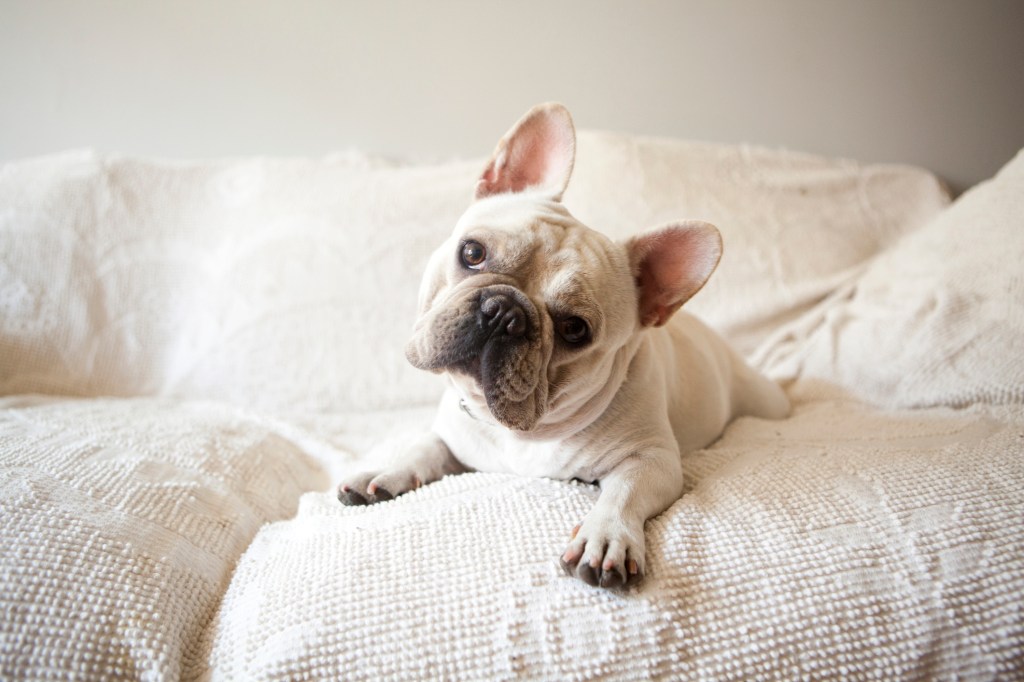
With a huge heart packed in a small frame, French Bulldogs have undeniable charm and an extremely expressive demeanor. Their small size coupled with their relatively lower exercise demands makes them perfect companions for apartments or smaller homes. Therefore, while they’re known for their adaptability, avoid leaving them alone for prolonged periods.
Maltese
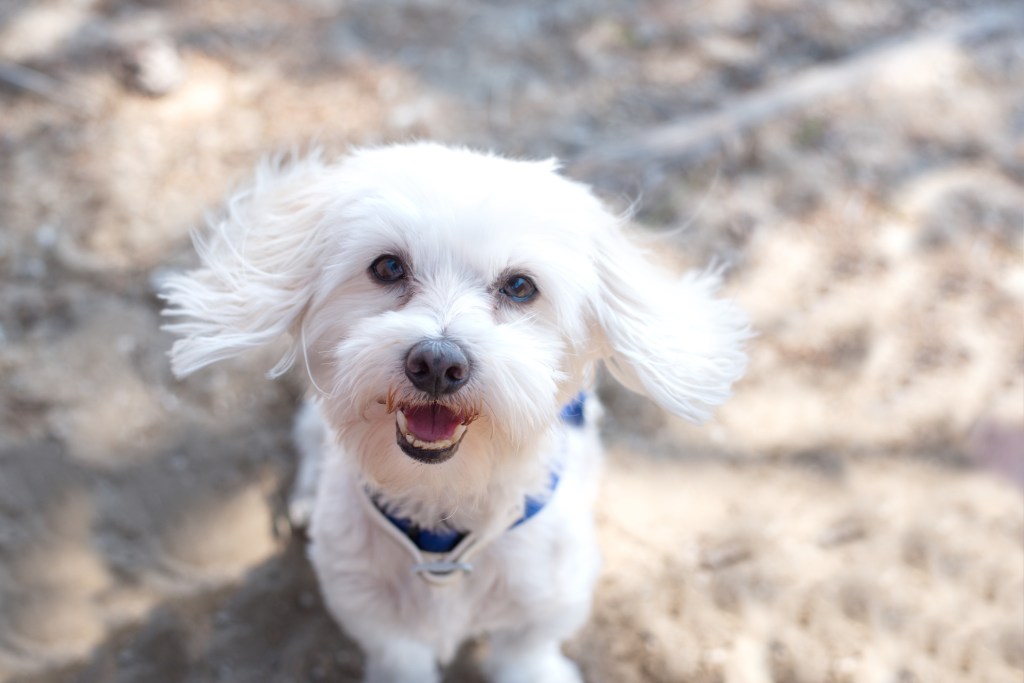
We absolutely adore the beautiful, fluffy, and velvety white coat of the Maltese! They are spirited dogs, full of energy and life. An added advantage is their suitability for people prone to allergies as they produce lesser dander than other breeds.
That said, it’s worth noting that Malteses are highly dependent pups. They display symptoms of anxiety when they feel abandoned or left alone — even for a short while. Moreover, they’re thought to have a “pack mentality,” meaning they require the constant presence of their pack.
Havanese
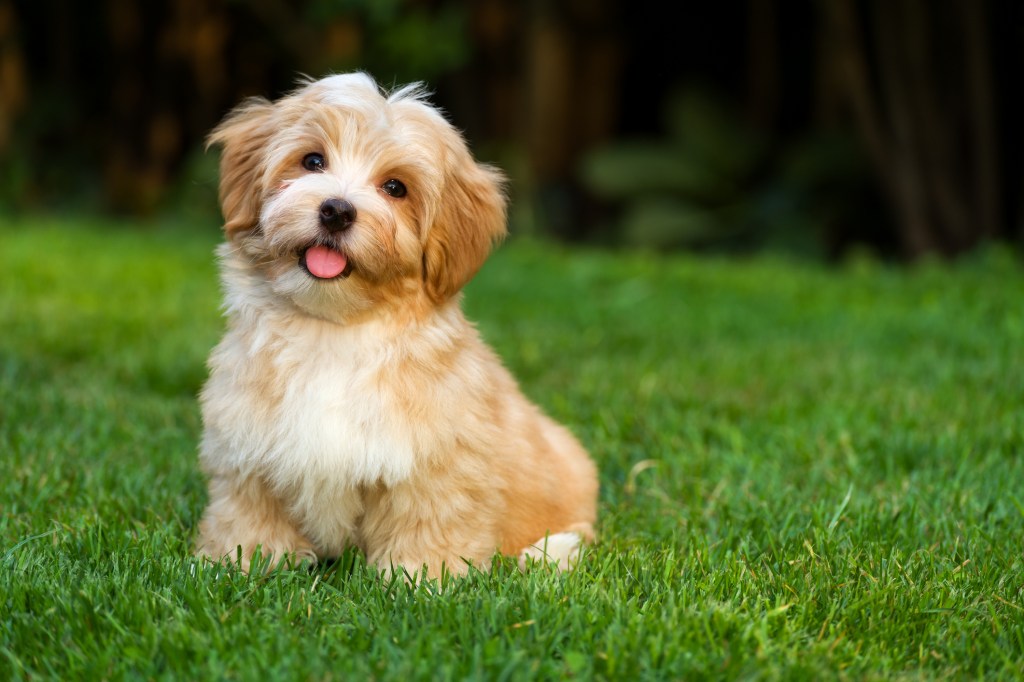
Known for their friendly and affectionate disposition, Havanese are small Velcro dogs that are incredibly loyal to their owners. They enjoy human company and thrive when surrounded by their family. Additionally, their adaptable nature makes them suitable for various living conditions, including small apartments and larger houses with yards.
Shetland Sheepdog
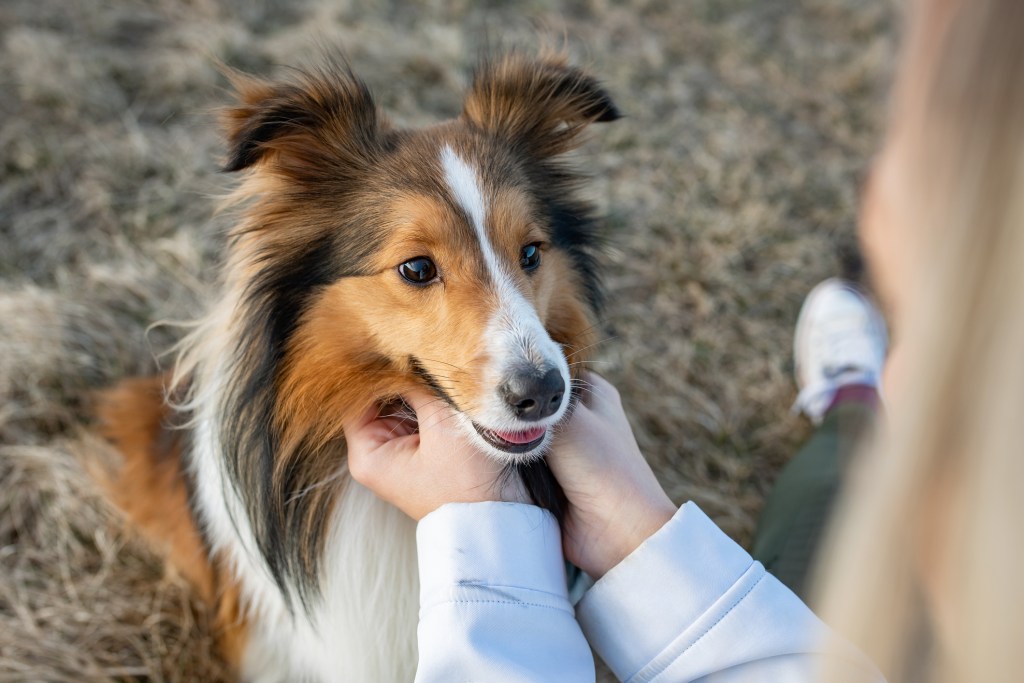
The Shetland Sheepdog — commonly known as the “Sheltie” — is a stunning medium-sized breed sporting a luxurious coat. They are intelligent, active, and loyal dogs who naturally display obedience and affection. These characteristics make them ideal for families with children, as engaging with young ones keeps them stimulated and active.
However, the deep loyalty and attachment that Shelties have towards their human family is a double-edged sword — they demand equal commitment in return. They establish strong, lifelong bonds with their families and may become distressed if left alone.
Poodle

The curliness and charm of this clingy canine cannot be overstated. Poodles come in three distinct sizes — toy, miniature, and standard — making them one of the most varied dog breeds. What’s constant, though, is their inherent love for family and companionship, requiring you to spend a dedicated portion of your day with them.
Caring for a Poodle can appear quite labor-intensive, particularly if you decide to keep a show-style coat. Nonetheless, regular clipping every six to eight weeks considerably simplifies upkeep. Just make sure to stay on top of appointments and grooming sessions to prevent any issues with their coat.
Tips for living with a velcro dog

Having a Velcro dog gives you the opportunity for endless petting sessions. However, if your furry companion becomes too clingy, it can be overwhelming. As a pet parent, you need to establish boundaries to make sure your household runs smoothly to ensure everyone’s happiness and well-being.
Begin obedience training as early as possible
Velcro dogs can be assertive with their affection. Therefore, it is essential to teach them good manners to prevent inappropriate behaviors such as surprising jumps on you or guests.
Set rules and abide by them
These rules vary for each household, and they might include preventing dogs from lounging on the couch or stopping them from hanging out in the doorway when you’re entering or leaving. Another rule could be not allowing begging at the dinner table. Setting such rules is critical for dogs because it gives them a clear understanding of the household norms.
Help your velcro dog socialize with others
The strong bond between you and your Velcro dog can sometimes lead to limited interactions with others. This can cause issues such as indifference or even aggression if your dog is inadequately socialized.
Familiarize your dog with other animals
Overattachment can often result in possessiveness, especially towards other animals. Thus, continuous and proper socialization with other dogs and pets is crucial in preventing potential problems.
Introduce crate training
Dogs prone to “Velcro” behavior are susceptible to separation anxiety, leading to unwanted chewing or tearing up of household objects when left alone. To protect your dog and home, begin crate training early to keep your pooch safely contained when you’re not at home.
Hire a dog walker or enroll in a doggy daycare
Velcro dogs need more attention than the average pet. If your work takes you away from home for extended hours, your dog might feel neglected. Considering the services of a dog walker or a doggy daycare can offer a solution by providing the necessary stimulation through walks or social interaction at the daycare.
While being a Velcro dog might be part of your pet’s personality, extreme cases might signal separation anxiety. If the clinginess becomes excessive or your dog seems unduly stressed when you’re not around, consider seeking professional help from a dog trainer or a veterinarian.
Is a velcro dog right for you
The affection and deep bond shared with Velcro dogs are sure to keep your heart full and your lap warm. Their love and constant need for companionship make them not just pets, but loyal family members. However, their dependent nature also requires understanding, patience, and time from their owners. Ultimately, these Velcro pups are the epitome of the adage, “A dog is man’s best friend.” So, if you’re looking for a canine companion who will stick to you like Velcro, these breeds might just be the perfect match for you!
